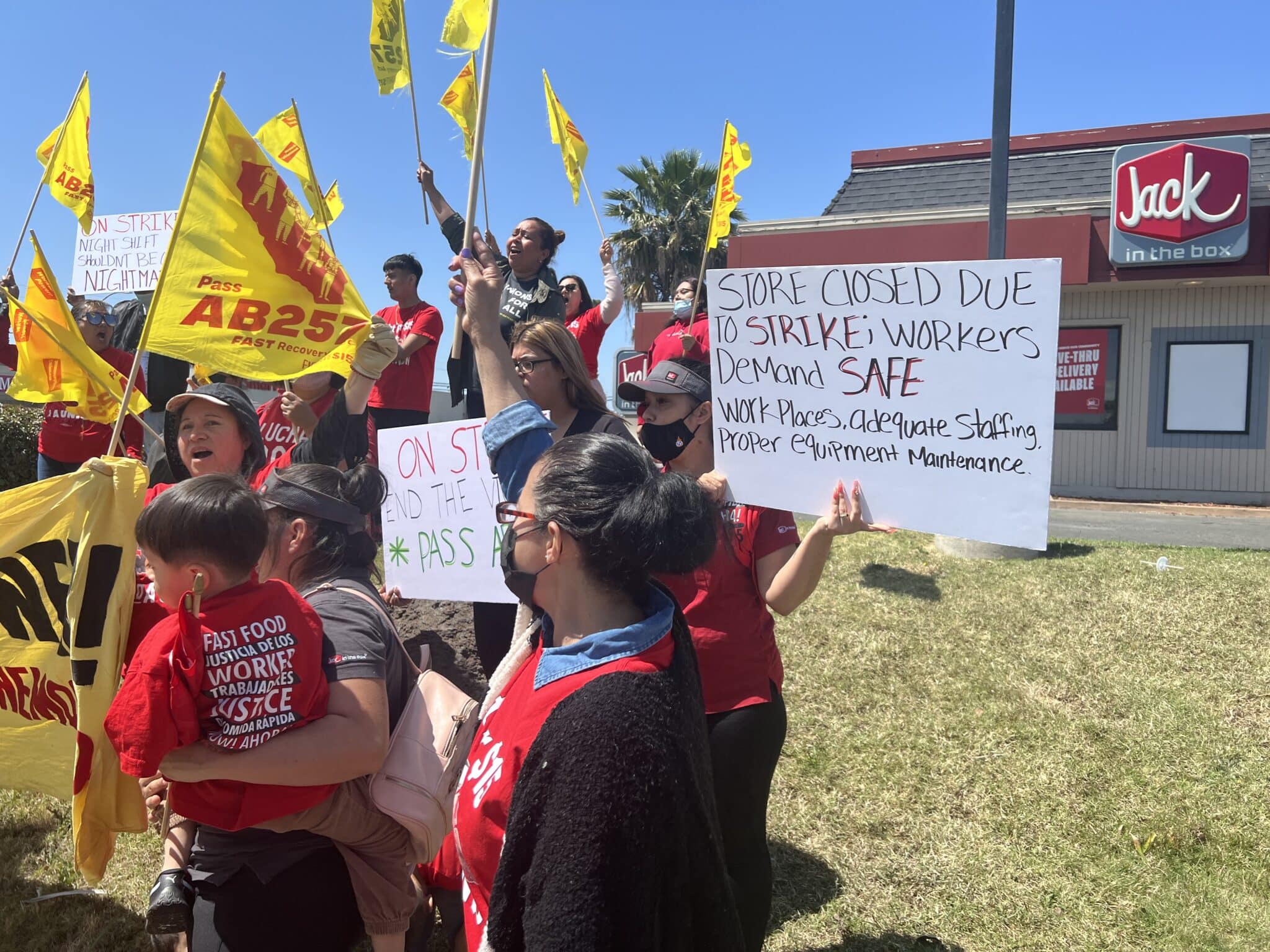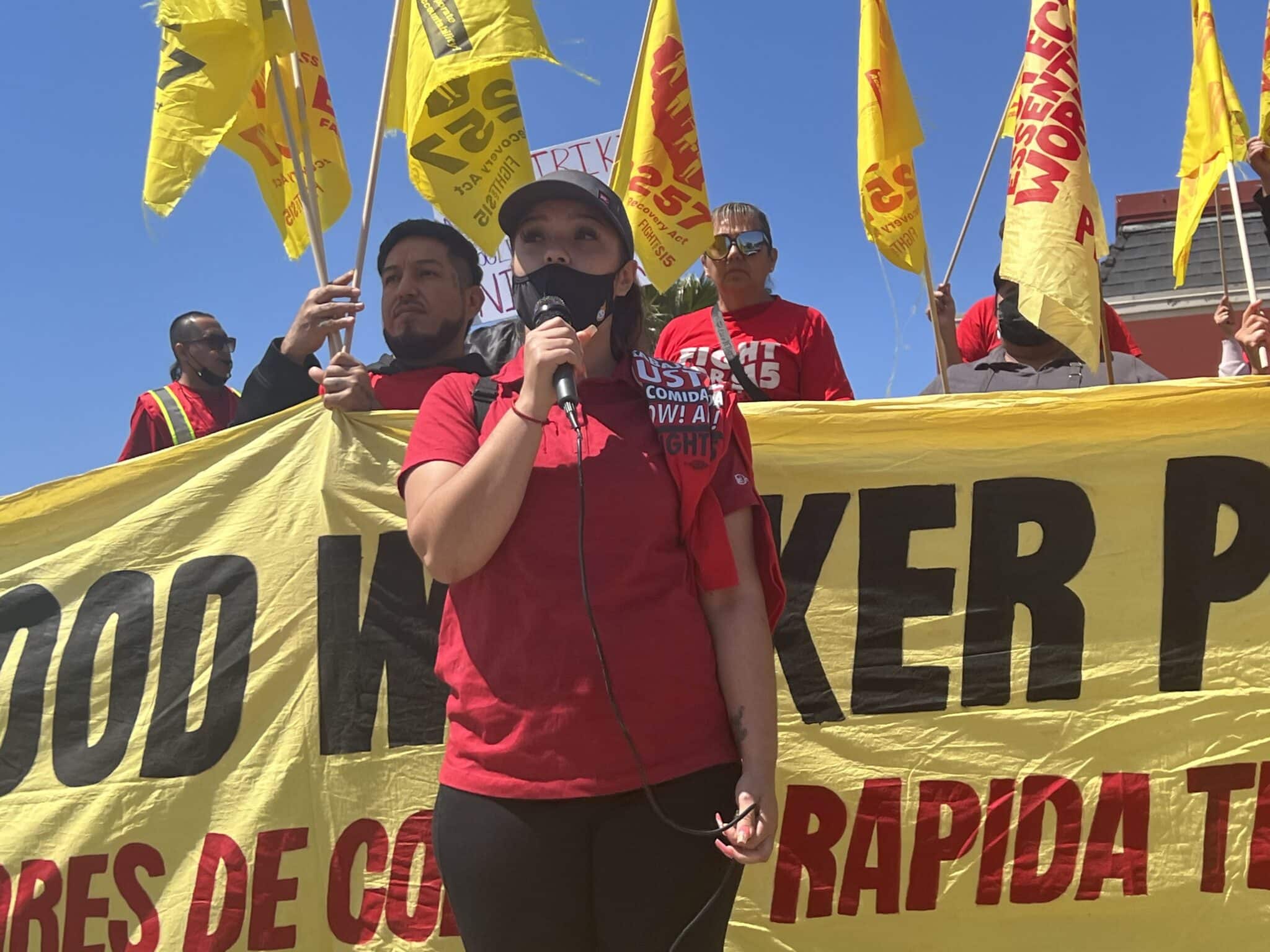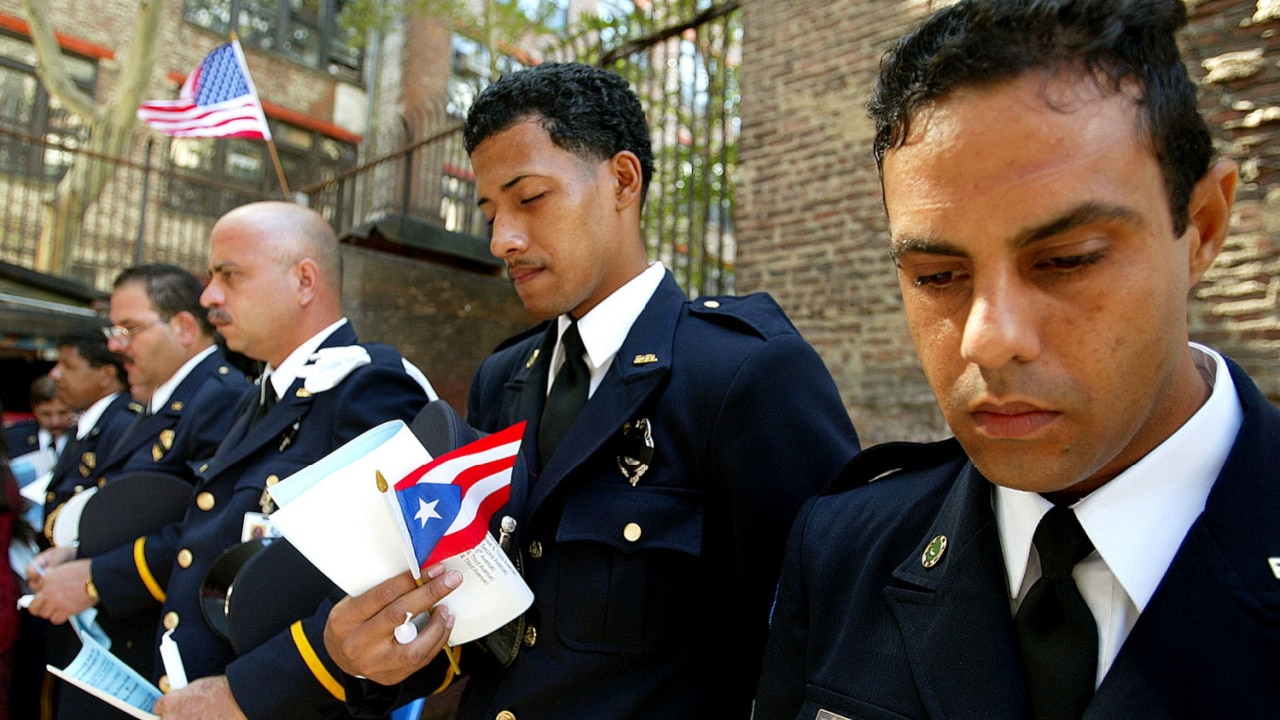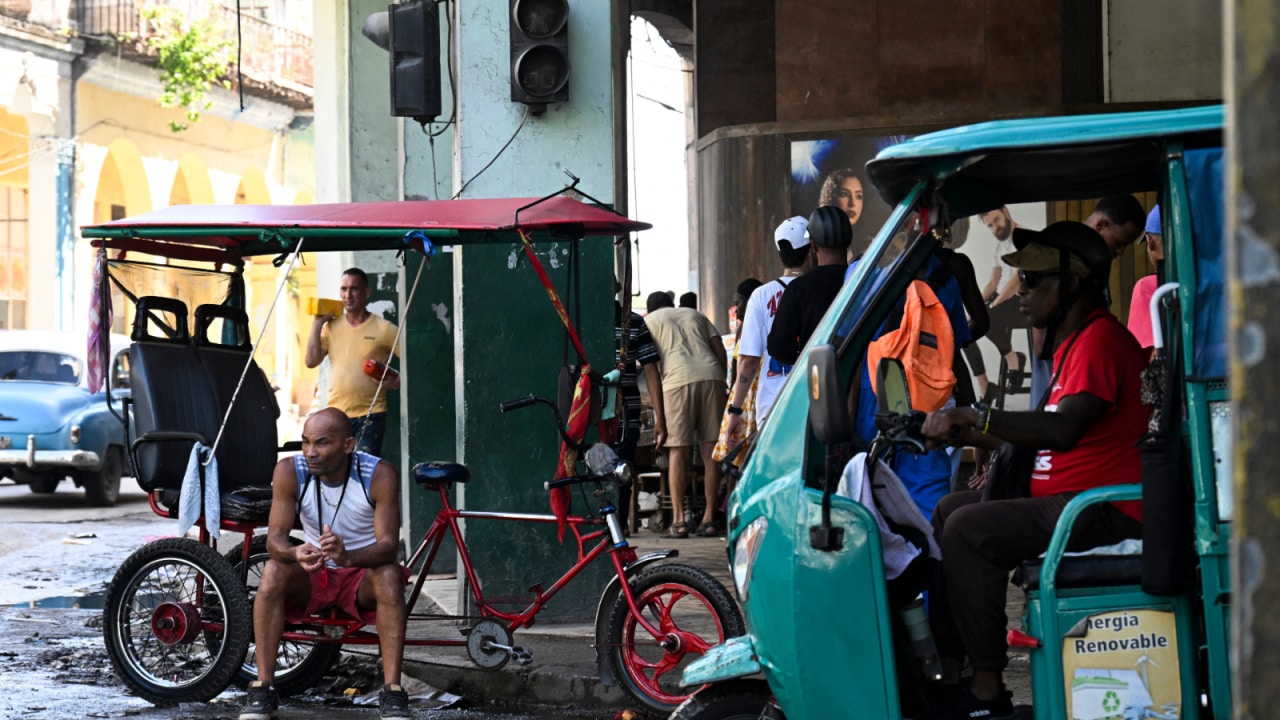The FAST Recovery Act Will Fundamentally Change California’s Fast Food Industry
When a Sacramento Jack in the Box shut down for three days as employees went on strike to demand better and safer working conditions, it was not business as usual.
The strike, which targeted everything from a broken ice machine to an altercation between a pregnant staff member and a customer who pointed a gun in her face, was a last resort. “We decided to go on strike because that’s the only way to catch their attention,” said Adonaida Dearmas, one of the Jack in the Box employees who went on strike for three days this past April. “Texting them and calling them is not working.”
“I needed help financially to provide for my kids, and working there has been really stressful. There are a lot of issues in that store,” Dearmas told mitú.
With the support of Fight for $15, a California labor organization committed to ending wage theft and establishing the kinds of inalienable workers’ rights that are so desperately needed in the fast food industry, the strikers fought for themselves and others in their industry as they championed a California bill called AB 257, or the FAST Recovery Act.
In speaking with one of the employees on strike as well as a California Assemblyperson named Wendy Carrillo — who co-authored the bill and has pushed for it to reach California Governor Gavin Newsom’s desk as soon as possible — mitú gained a better understanding of the conditions that made striking necessary, and the possibilities that lay ahead if the FAST Recovery Act were to be signed into law.

“When I was in high school, I worked at McDonald’s. So I feel a personal connection to this bill,” says Carrillo, who began working with the SEIU (Service Employees International Union) before being elected to the California Assembly in 2017. “I was in the room way back in 2012, when McDonald’s workers in New York went on strike, and I was part of the communications development strategy around the Fight for $15.”
Hearing Carrillo explain what the FAST Recovery act will accomplish is enough to make one wonder why nothing like it already exists, and why it took a pandemic for consumers and franchise owners alike to consider the necessity of labor protections outside of their own interests.
“[The FAST Recovery Act] establishes, for the first time, a Fast Food Sector Council,” says Carrillo, “and tasks the council with conducting a full review every three years on the adequacy of fast food, restaurant health safety, employment standards, and establishing a statewide minimum health safety wage and working hours and employment standards.”
She adds, “It’s really the first time ever that fast food workers will be able to come to the table related to creating workforce development standards and safety standards for the industry that they work in.”
When most people think of franchises, they either think of the large corporations that oversee them, or the “small independent operators” that run them on an individual level. What may come as a surprise to some is the idea that, according to Carrillo, “those small independent operators are not small at all.” In fact, they can sometimes operate like a subsidiary of the corporation itself, with an uncaring and impersonal attitude towards their employees.

Dearmas explains, “There’s never a manager on duty. There would sometimes be a shift lead, but only in the mornings. So if we’re dealing with customers that are mad, we’ve got to figure it out by ourselves. If it’s me and another co-worker, then that’s when I come in saying that I’m the one in charge. So we’re lying to them in order for them to not be aggressive.”
Communication at this and many other franchises like it has completely broken down, and employees are left to fend for themselves. In Dearmas’ case, she’d only been working at this particular Jack in the Box for less than a month, with no training, before going on strike.
In many respects, the COVID-19 pandemic was a wakeup call for the fast food industry, which was expected to carry on as normal without the proper protections, in both health and labor standards. “Fast food workers did not have access to PPE, they did not have access to the very basic minimum safety standards amid the pandemic,” Carrillo says. “And we know that essential workers are frontline workers.”
She continues, “Fast food workers are also those who suffered the most from COVID-19 infections and COVID-19 deaths. We know that the majority of fast food workers are also Latino. So this [bill] is a way in which we recognize this particular workforce that hasn’t had the type of safety standards and labor protections that a lot of other workers have had in the past.”

Wage theft is also a major concern for strikers, especially during a time when coming into work sick is not only irresponsible, it’s potentially fatal to the customers and employees who are exposed to the coronavirus. “Wage theft can go anywhere from paid sick leave violations, rest or meal break violations, paycheck problems, minimum wage and overtime violations, and unpaid work violations. Nationally, this costs about $15 billion dollars in wage losses for workers,” Carrillo says.
Dearmas herself is a victim of wage theft, and the ramifications of that theft have begun to take a toll. “Since there aren’t enough people on the clock, I can’t get my breaks when I’m supposed to,” she explains. “I don’t get my breaks on time because there’s no one who can cover me in the front. And that’s… that’s stressful. If I’m working a lot by myself, I at least want my break.” She adds, “I have never been through what I’m going through in Jack in the Box. I don’t think it’s illegal to leave just one person on drive-thru. There should be more people.”
Carrillo agrees, and assures mitú this is not a partisan issue. “Democrats, Independents, and Republicans believe that creating protections for fast food workers would be beneficial, not only to the workers themselves, but to consumers. To make sure that the food they’re receiving is at the utmost of health standards, that the employees working at that restaurant have labor protections, and that they’re able to take their breaks. Something as simple as a 15-minute break can make a big difference.”

“Hopefully, what happened in these three days made them realize that they need to hear us. They need to take action,” says Dearmas.
At the time of our interview, neither management nor corporate had offered any official response to the strike. Whether the workers at this particular Jack in the Box location are successful remains to be seen. But it’s clear that California’s FAST Recovery Act would represent a massive leap forward for the fast food industry and employees throughout the state.
“There are more workers across the state of California than there are franchise owners.” Carrillo says.
“Essential and frontline workers, especially those who work within the fast food industry, shouldn’t have to choose between going to work sick, and potentially infecting customers or their colleagues, or paying their rent and putting food on the table.”




